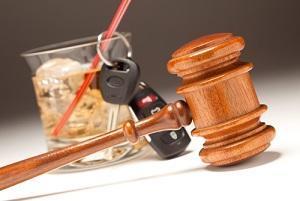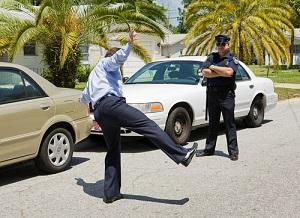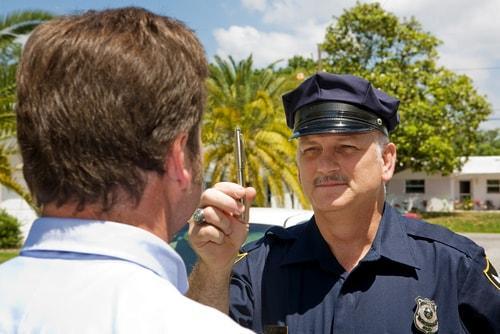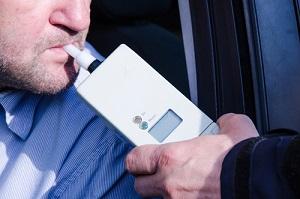Recent Blog Posts
The Zero Tolerance Law in Illinois
 According to the Illinois State Police, approximately forty percent of Americans will be involved in an alcohol-related crash at some point in their lives. Underage drunk driving accidents account for a large portion of these auto accidents. The need for a proactive approach to underage drunk driving is an ongoing problem.
According to the Illinois State Police, approximately forty percent of Americans will be involved in an alcohol-related crash at some point in their lives. Underage drunk driving accidents account for a large portion of these auto accidents. The need for a proactive approach to underage drunk driving is an ongoing problem.
Legal Consequences of Drinking and Driving Underage
Illinois maintains a "Zero Tolerance" law for drivers who are underage (under the age of 21). This means that a driver who is not above 21 years old who is caught driving with any trace of alcohol in their system can be charged with driving under the influence. Underage drivers do not need to be impaired in order to be charged with a DUI. Put another way, young people who drink and drive do not need to have a blood alcohol level of .08% or above in order to break the law. Legal consequences of a conviction for drinking and driving while underage include loss of diving privileges for a minimum of 2 years, a fine of up to $2500 and possible imprisonment for up to a year for the first conviction. A second underage DUI conviction will result in 48 hours mandatory jail time or 10 days of community service, the loss of driving privileges for a minimum of 3 years, and possible imprisonment for up to a year. A third underage DUI conviction is a class 4 felony. Those convicted face a fine of up to $25,000, a maximum of 3 years of prison time, and the loss of driving privileges for 6 years or more.
Fake IDs Can Have Very Real Consequences
 A quick Google search for "fake IDs" returns over a million results. Many of the top search results are websites touting their business of manufacturing and distributing fake driver’s licenses and identification cards. The websites claim that their IDs "even fool experts!" and "pass blacklight tests!" With school is starting for most colleges, many young people will be tempted by the appeal of purchasing a fake ID. Students under the legal drinking age may be drawn by the possibility of being able to buy alcohol or to get into bars and nightclubs that are 21 and over. It may seem easy to get away with using a fake ID, but the reality is that obtaining or using a fake ID is a crime that can have very serious consequences.
A quick Google search for "fake IDs" returns over a million results. Many of the top search results are websites touting their business of manufacturing and distributing fake driver’s licenses and identification cards. The websites claim that their IDs "even fool experts!" and "pass blacklight tests!" With school is starting for most colleges, many young people will be tempted by the appeal of purchasing a fake ID. Students under the legal drinking age may be drawn by the possibility of being able to buy alcohol or to get into bars and nightclubs that are 21 and over. It may seem easy to get away with using a fake ID, but the reality is that obtaining or using a fake ID is a crime that can have very serious consequences.
Consequences of Buying or Using a Fake ID
The state of Illinois takes fake IDs very seriously. It is illegal to obtain, distribute, use or even possess a fraudulent state ID card or driver’s license, as well as to help anyone else do the same. The state has the authority to suspend or even revoke a person’s driving privileges if they are caught possessing another person’s license or state ID card. This can happen without a conviction.
The Consequences of Theft in Illinois
 Finding desired merchandise at your favorite store can be very easy, and it may be tempting to take it without paying. However, if you do not pay for a product, or if you take property that is not yours, there may be consequences that you have to face, as theft is not taken lightly by criminal courts in Illinois
Finding desired merchandise at your favorite store can be very easy, and it may be tempting to take it without paying. However, if you do not pay for a product, or if you take property that is not yours, there may be consequences that you have to face, as theft is not taken lightly by criminal courts in Illinois
What Is Theft?
Theft is defined as the act of a person illegally taking another person's property or services without permission or consent. A person may deliberately obtain unauthorized control over the owner’s property by deception or threat. Theft can also be defined as the act of a person taking control over property that was previously stolen, with that person already having the knowledge of the stolen property.
The Consequences of Theft
There are several consequences when a person gets caught stealing property, depending on the severity of the crime, with the charges applying to the State of Illinois.
The Basics of White Collar Crime
 Nearly everyone has at least heard the term "white collar crime" before, but not everyone understands what it means. There are a wide variety of criminal activities that fall into the category of white collar crime, and they generally involve the theft of data and financial assets to be used for personal gain by the perpetrator. In many cases, the criminal does not even come into contact with their victim, and many victims of white collar crime are unaware of the crime until much later. White collar crime is very serious, and anyone facing charges related to a white collar crime should seek the help of a qualified criminal defense attorney.
Nearly everyone has at least heard the term "white collar crime" before, but not everyone understands what it means. There are a wide variety of criminal activities that fall into the category of white collar crime, and they generally involve the theft of data and financial assets to be used for personal gain by the perpetrator. In many cases, the criminal does not even come into contact with their victim, and many victims of white collar crime are unaware of the crime until much later. White collar crime is very serious, and anyone facing charges related to a white collar crime should seek the help of a qualified criminal defense attorney.
Common White Collar Crimes
There are a variety of different offenses that fall under the umbrella of white collar crime. These types of crimes often occur in business or professional settings; hence the term "white collar" as a reference to dress shirts common in such environments. Crimes that are commonly considered white collar include:
Standardized Field Sobriety Tests, Part 3: The One-Leg Stand
 Over the last couple of weeks, posts on this blog have talked a little about the battery of standardized field sobriety tests (SFSTs) recognized by the National Highway Traffic Safety Administration. These three tests are commonly used by police officers during traffic stops to help determine whether a driver is impaired by alcohol or drugs. If you have been arrested on drunk driving charges, you should seek help from a skilled defense attorney immediately.
Over the last couple of weeks, posts on this blog have talked a little about the battery of standardized field sobriety tests (SFSTs) recognized by the National Highway Traffic Safety Administration. These three tests are commonly used by police officers during traffic stops to help determine whether a driver is impaired by alcohol or drugs. If you have been arrested on drunk driving charges, you should seek help from a skilled defense attorney immediately.
Two Types, Three Tests
There are three tests that comprise the SFSTs: the horizontal gaze nystagmus, the walk-and-turn, and the one-leg stand. The first test—the horizontal gaze nystagmus—is an observation of involuntary eye movements while the subject follows a pen or flashlight with his or her eyes. The other two tests are both considered "divided attention" tests, because they test the subject’s ability to hear and follow instructions while performing simple tasks. The rationale behind these tests is that a sober person, for the most part, would have little trouble completing them, while an impaired person is much more likely to struggle.
Standardized Field Sobriety Tests, Part 2: The Walk-and-Turn
 For most people, walking several steps in a straight line then turning around and walking back is about as simple an action as there is. Doing so, of course, may be considerably more difficult for those who have been drinking. That is why the National Highway Traffic Safety Administration has recognized the "Walk-and-Turn" as one of the three assessments that comprise the standardized field sobriety tests (SFSTs) used by law enforcement nationwide.
For most people, walking several steps in a straight line then turning around and walking back is about as simple an action as there is. Doing so, of course, may be considerably more difficult for those who have been drinking. That is why the National Highway Traffic Safety Administration has recognized the "Walk-and-Turn" as one of the three assessments that comprise the standardized field sobriety tests (SFSTs) used by law enforcement nationwide.
In a recent post on this blog, we talked about the first test of the series—the horizontal gaze nystagmus (HGN). The walk-and-turn is the second test, and the third is the one-leg stand, which will be covered in the near future. Each test was selected to allow officers on the scene to observe a subject’s reflexes and involuntary responses, giving the officer the basis on which to suspect whether a driver is impaired.
Test 2: The Walk-and-Turn
There are two distinct phases of the walk-and-turn test. The first is the instruction phase, during which the officer asks the subject to stand heel-to-toe with his or her arms downs and at the side of the body. The officer explains the test and demonstrates how it should be performed. Before allowing the subject to begin, the officer will confirm that the subject understands the instructions. Then the second phase—the performance phase—begins.
Standardized Field Sobriety Tests, Part 1: The Horizontal Gaze Nystagmus Test
 A recent post on this blog talked a little about the use of breathalyzers when drivers are stopped on the suspicion of driving under the influence (DUI). While chemical tests like breathalyzers are commonly used by law enforcement to gather evidence to support a DUI arrest, officers have a number of other tools at their disposal to help them identify drunk drivers. Among these is a battery of tests known as standardized field sobriety tests, or SFSTs, which includes three separate activities during which the officer will look for indicators of intoxication. Over the next several weeks, we will discuss each test in detail.
A recent post on this blog talked a little about the use of breathalyzers when drivers are stopped on the suspicion of driving under the influence (DUI). While chemical tests like breathalyzers are commonly used by law enforcement to gather evidence to support a DUI arrest, officers have a number of other tools at their disposal to help them identify drunk drivers. Among these is a battery of tests known as standardized field sobriety tests, or SFSTs, which includes three separate activities during which the officer will look for indicators of intoxication. Over the next several weeks, we will discuss each test in detail.
The Basics of Field Sobriety Tests
The National Highway Traffic Safety Administration (NHTSA) has officially recognized three separate tests that comprise the battery of SFSTs used by law enforcement officers nationwide. These tests—the horizontal gaze nystagmus, the walk-and-turn, and the one-leg stand—measure specific involuntary responses or reflexes that could be compromised by alcohol or drugs. The tests are not definitive in and of themselves but are part of a larger body of evidence to support an officer’s suspicion that a driver is intoxicated.
Uber May Not Be Helping the Drunk Driving Problem
 Drunk driving is a deadly problem in the United States. Every year, there are on average 121 million drunk drivers which result in 10,000 traffic fatalities. Uber and Lyft are two popular ridesharing services that offer rides for individuals who either cannot drive or choose not to drive. Many had hoped that these rideshare services would help lessen the number of drunk drivers on the road, but the numbers are suggesting a different reality.
Drunk driving is a deadly problem in the United States. Every year, there are on average 121 million drunk drivers which result in 10,000 traffic fatalities. Uber and Lyft are two popular ridesharing services that offer rides for individuals who either cannot drive or choose not to drive. Many had hoped that these rideshare services would help lessen the number of drunk drivers on the road, but the numbers are suggesting a different reality.
An Alternative to a DUI
People can use their smartphones to hail an Uber driver to take them to events where they plan on drinking and then catch another Uber when they are ready to go home. Uber has touted that their service will and does reduce the number of drunk drivers on the road. In 2015, Uber surveyed members from Mothers Against Drunk Driving (MADD) and found evidence that people assume the availability of ridesharing services will decrease the number of drunk drivers. Overall, however, this has not been the case. Although these services are widely used, a study shows that the availability of services like Uber have had virtually no effect on the number of drunk driving fatalities.
The Dangers of College Binge Drinking
 For many college students, drinking is as much a part of their life as going to classes or making new friends. College parties are almost synonymous with large quantities of beer and liquor. The National Survey on Drug Use and Health (NSDUH) estimates that nearly 40% of college students between the ages of 18-22 binge drink regularly. Some of the drinking results in relatively harmless fun, but sometimes, the behavior can lead to charges of driving under the influence (DUI) or worse.
For many college students, drinking is as much a part of their life as going to classes or making new friends. College parties are almost synonymous with large quantities of beer and liquor. The National Survey on Drug Use and Health (NSDUH) estimates that nearly 40% of college students between the ages of 18-22 binge drink regularly. Some of the drinking results in relatively harmless fun, but sometimes, the behavior can lead to charges of driving under the influence (DUI) or worse.
What Is Binge Drinking?
When you think of binge drinking, an image of a person chugging drink after drink may come to mind. But it is not always so easy to spot binge drinking. Many individuals would be surprised to know that they are binge drinking—especially if everyone around them is drinking the about the same quantity. Binge drinking is defined as having four or more drinks in two hours for women and five or more drinks for men. Men are often larger and can metabolize alcohol more easily than women. Drinking this amount of alcohol will almost certainly bring a person’s blood alcohol concentration (BAC) to 0.08 or above. One in six adults report binge drinking and it is much more common for younger adults than older adults.
Are Breathalyzers Accurate?
 Breathalyzers are the most commonly used form of testing used to find a driver’s blood-alcohol content (BAC). Usually administered by a police officer during a traffic stop, breathalyzers are used to determine if a driver is driving under the influence of alcohol. Although they are used quite frequently, breathalyzers are not the most accurate measure of how much alcohol an individual has consumed. A blood test is much more precise, but blood tests cannot be easily administered during a traffic stop.
Breathalyzers are the most commonly used form of testing used to find a driver’s blood-alcohol content (BAC). Usually administered by a police officer during a traffic stop, breathalyzers are used to determine if a driver is driving under the influence of alcohol. Although they are used quite frequently, breathalyzers are not the most accurate measure of how much alcohol an individual has consumed. A blood test is much more precise, but blood tests cannot be easily administered during a traffic stop.
In most cases, a breathalyzer will only be administered if the police officer has reasonable suspicion that a driver is under the influence of alcohol. If an individual has more than 80 mg alcohol per 100 mL of blood in their body, he or she is considered over the legal limit in Illinois.
Sources of Error
Over the years, many individuals and groups have called the accuracy of breathalyzers into question. In February, thousands of tests were thrown out in Boston after suspicion that the tests were erroneous. The machines were found to be improperly calibrated and maintained by the state of Massachusetts. Another source of error is interfering compounds found in the breath which can significantly affect the test results. Substances such as lacquer, paint remover, gasoline, cleaning fluids, and other ethers/alcohols can result in a false positive reading on some breathalyzer machines.








